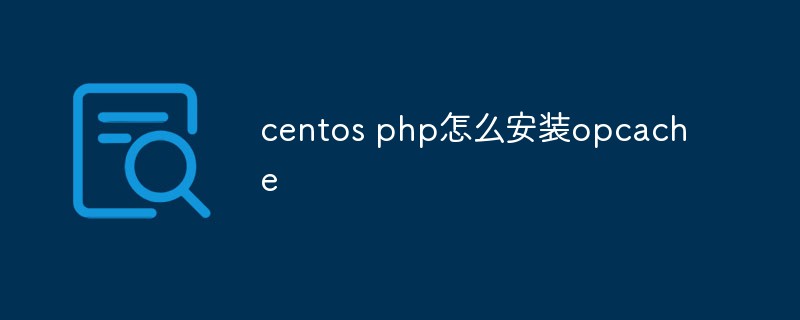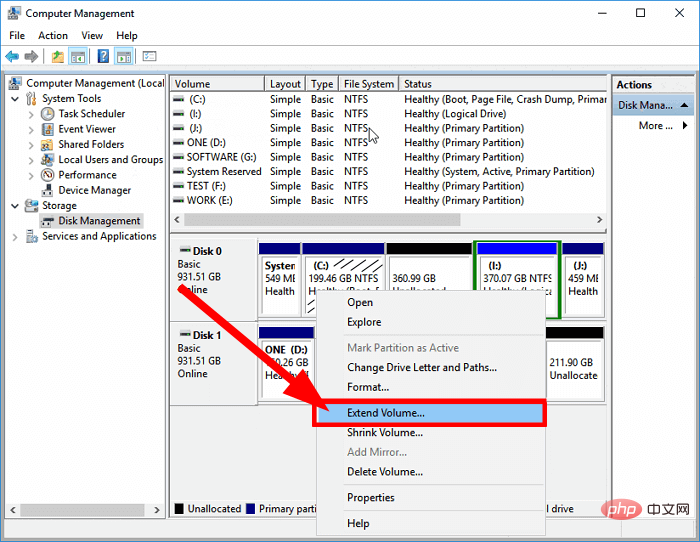 System Tutorial
System Tutorial LINUX
LINUX CentOS installation PostgreSQL and CentOS installation black screen solution
CentOS installation PostgreSQL and CentOS installation black screen solutionphp editor Xigua brings you a tutorial on installing PostgreSQL on CentOS and solving the black screen problem during CentOS installation. In this article, we will introduce in detail how to install PostgreSQL on the CentOS operating system, and provide solutions to solve the black screen problem you may encounter during the CentOS installation process. Whether you are a beginner or an experienced developer, this tutorial can help you successfully complete the installation and solve possible problems, so that you can successfully use PostgreSQL for development and management work.

CentOS installation of PostgreSQL
Installing PostgreSQL on CentOS is very simple, the following are the detailed steps:
Step 1: Update system
Before starting the installation, first ensure that your CentOS system is up to date, update the system using the following command:
```
sudo yum update
Step 2: Install PostgreSQL
After updating the system, use the following command to install PostgreSQL:
sudo yum install postgresql-server
Step 3: Initialize the database
After the installation is complete, you need to initialize the PostgreSQL database. Use the following command to initialize:
sudo postgresql-setup initdb
Step 4: Start and set up auto-start at boot
Complete initialization After that, start the PostgreSQL service and set it to start automatically when the system starts:
sudo systemctl start postgresql
sudo systemctl enable postgresql
Step 5: Set access permissions
By default, PostgreSQL only allows local connections. If you need to access the database remotely, you can edit the PostgreSQL configuration file and change access permissions. Use the following command to open the configuration file:
sudo vi /var/lib/ pgsql/data/pg_hba.conf
Find the following lines in the file:
# IPv4 local connections:
host all all 127.0.0.1/32 ident
Modify it to:
host all all 0.0.0.0/0 md5
Save and close the file.
Solution to black screen during CentOS installation
During the use of CentOS, you may sometimes encounter a black screen. This may be caused by a variety of reasons, such as graphics card driver issues or system configuration. Error, here are some common methods to solve the CentOS black screen problem:
Method 1: Change the graphics card driver
The black screen problem may be related to the graphics card driver you are currently using. Try changing or updating the graphics card driver to To solve the problem, you can check the currently used graphics card driver by running the following command:
lspci -k | grep -A 2 -i "VGA"
Determine your graphics card model based on the displayed information And find the corresponding driver, then follow the instructions provided by the driver to install or update it.
Method 2: Check Xorg configuration
The black screen problem may also be caused by misconfiguration in the Xorg configuration file, you can try to reconfigure Xorg to solve the problem, use the following command to back up and restart Configure the Xorg configuration file:
sudo mv /etc/X11/xorg.conf /etc/X11/xorg.conf.bak
sudo Xorg -configure
sudo mv ~ /xorg.conf.new /etc/X11/xorg.conf
Then restart the system for the changes to take effect.
Method 3: Adjust the monitor resolution
The black screen problem may be caused by incorrect monitor resolution settings. Try adjusting the monitor resolution to solve the problem. You can use the following commands to view and change Monitor resolution:
xrandr
xrandr --output --mode
Replace `` with your monitor name and `` with your desired resolution.
Share for you
I hope the above steps can help you successfully install PostgreSQL and solve the CentOS black screen problem. If you encounter any other problems or have other Linux-related problems, please feel free to consult us. .
The above is the detailed content of CentOS installation PostgreSQL and CentOS installation black screen solution. For more information, please follow other related articles on the PHP Chinese website!
 centos用什么命令可查版本号Mar 03, 2022 pm 06:10 PM
centos用什么命令可查版本号Mar 03, 2022 pm 06:10 PM查版本号的命令:1、“cat /etc/issue”或“cat /etc/redhat-release”,可输出centos版本号;2、“cat /proc/version”、“uname -a”或“uname -r”,可输出内核版本号。
 centos重启网卡的方法是什么Feb 22, 2023 pm 04:00 PM
centos重启网卡的方法是什么Feb 22, 2023 pm 04:00 PMcentos重启网卡的方法:1、对于centos6的网卡重启命令是“service network restart”;2、对于centos7的网卡重启命令是“systemctl restart network”。
 centos php怎么安装opcacheJan 19, 2023 am 09:50 AM
centos php怎么安装opcacheJan 19, 2023 am 09:50 AMcentos php安装opcache的方法:1、执行“yum list php73* | grep opcache”命令;2、通过“yum install php73-php-opcache.x86_64”安装opcache;3、使用“find / -name opcache.so”查找“opcache.so”的位置并将其移动到php的扩展目录即可。
 centos 怎么离线安装 mysqlFeb 15, 2023 am 09:56 AM
centos 怎么离线安装 mysqlFeb 15, 2023 am 09:56 AMcentos离线安装mysql的方法:1、将lib中的所有依赖上传到linux中,并用yum命令进行安装;2、解压MySQL并把文件复制到想要安装的目录;3、修改my.cnf配置文件;4、复制启动脚本到资源目录并修改启动脚本;5、将mysqld服务加入到系统服务里面;6、将mysql客户端配置到环境变量中,并使配置生效即可。
 centos 7安装不出现界面怎么办Jan 03, 2023 pm 05:33 PM
centos 7安装不出现界面怎么办Jan 03, 2023 pm 05:33 PMcentos7安装不出现界面的解决办法:1、选择“Install CentOS 7”,按“e”进入启动引导界面;2、 将“inst.stage2=hd:LABEL=CentOS\x207\x20x86_64”改为“linux dd”;3、重新进入“Install CentOS 7”,按“e”将“hd:”后的字符替换成“/dev/sdd4”,然后按“Ctrl+x”执行即可。
 centos 怎么删除 phpFeb 24, 2021 am 09:15 AM
centos 怎么删除 phpFeb 24, 2021 am 09:15 AMcentos删除php的方法:1、通过“#rpm -qa|grep php”命令查看全部php软件包;2、通过“rpm -e”命令卸载相应的依赖项;3、重新使用“php -v”命令查看版本信息即可。
 centos中ls命令不显示颜色怎么办Apr 20, 2022 pm 03:16 PM
centos中ls命令不显示颜色怎么办Apr 20, 2022 pm 03:16 PM方法:1、利用“vim ~/.bashrc”编辑用户目录(~)下的“.bashrc”文件;2、在文件内添加“alias ls="ls --color"”;3、利用“:wq!”命令保存文件内的更改;4、“exit”命令退出终端后重新连接即可。
 如何在 CentOS 9 Stream 上安装 NagiosMay 10, 2023 pm 07:58 PM
如何在 CentOS 9 Stream 上安装 NagiosMay 10, 2023 pm 07:58 PM我们的PC中有一个磁盘驱动器专门用于所有与Windows操作系统相关的安装。该驱动器通常是C驱动器。如果您还在PC的C盘上安装了最新的Windows11操作系统,那么所有系统更新(很可能是您安装的所有软件)都会将其所有文件存储在C盘中。因此,保持此驱动器没有垃圾文件并在C驱动器中拥有足够的存储空间变得非常重要,因为该驱动器拥有的空间越多,您的Windows11操作系统运行起来就越顺畅。但是您可以在磁盘驱动器上增加多少空间以及可以删除多少文件是有限制的。在这种情况下,


Hot AI Tools

Undresser.AI Undress
AI-powered app for creating realistic nude photos

AI Clothes Remover
Online AI tool for removing clothes from photos.

Undress AI Tool
Undress images for free

Clothoff.io
AI clothes remover

AI Hentai Generator
Generate AI Hentai for free.

Hot Article

Hot Tools

Dreamweaver CS6
Visual web development tools

ZendStudio 13.5.1 Mac
Powerful PHP integrated development environment

Atom editor mac version download
The most popular open source editor

SublimeText3 Mac version
God-level code editing software (SublimeText3)

Safe Exam Browser
Safe Exam Browser is a secure browser environment for taking online exams securely. This software turns any computer into a secure workstation. It controls access to any utility and prevents students from using unauthorized resources.






